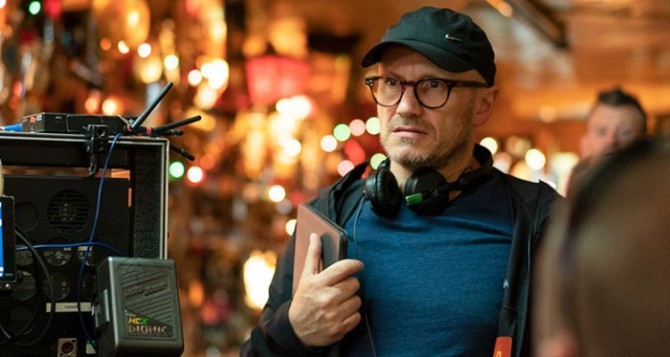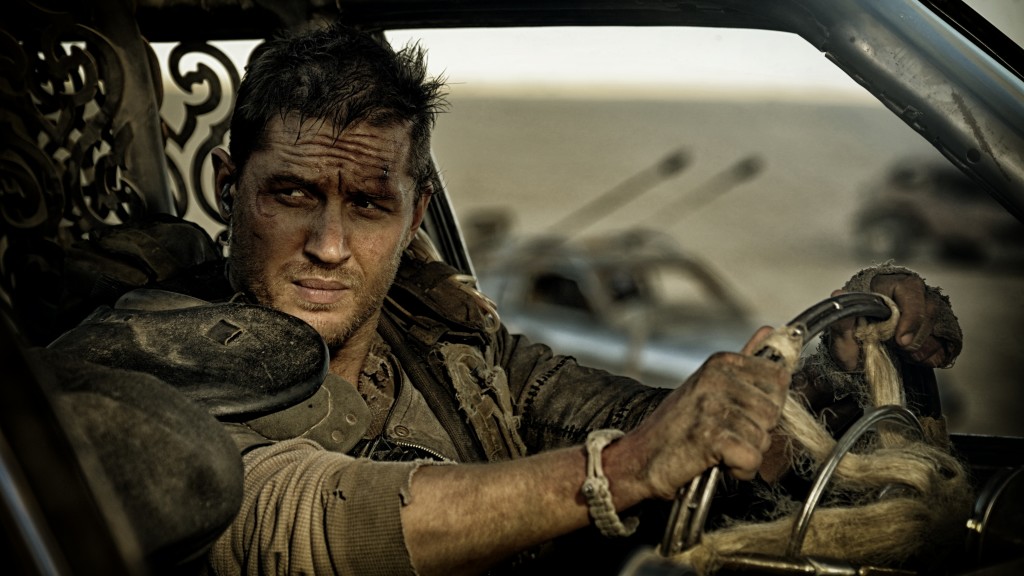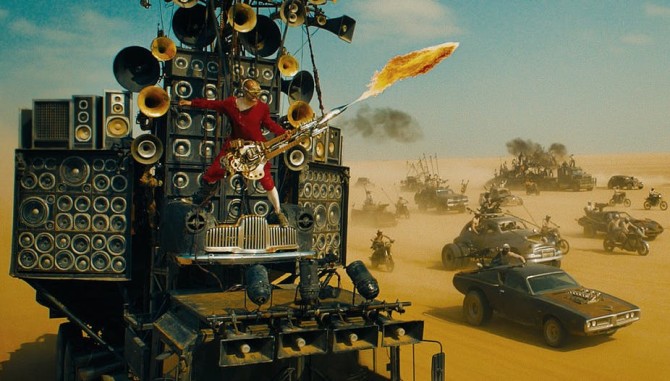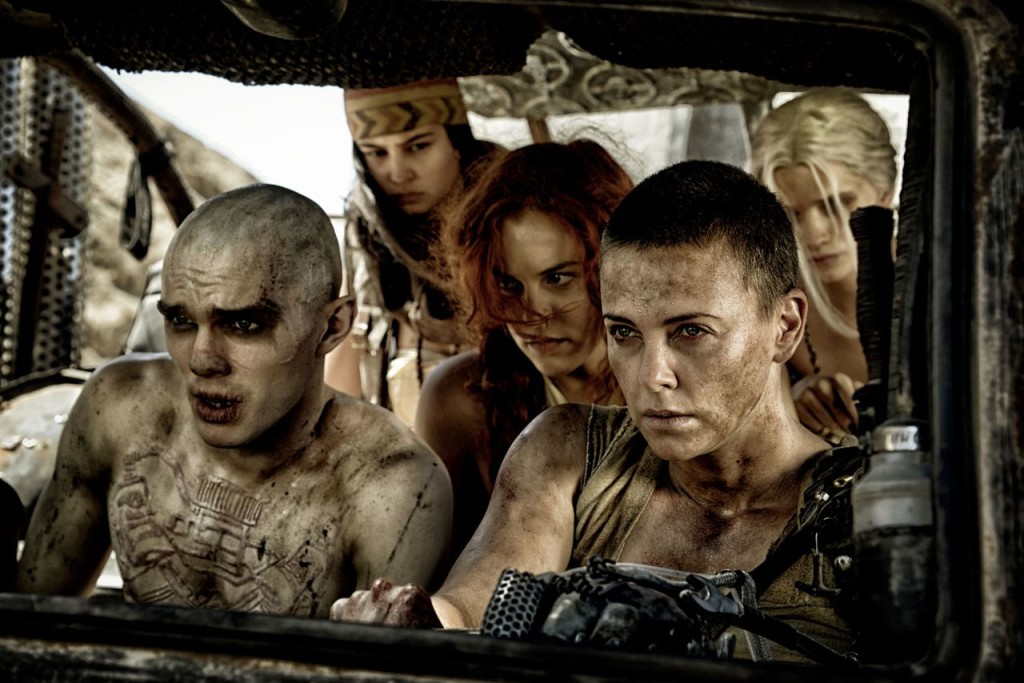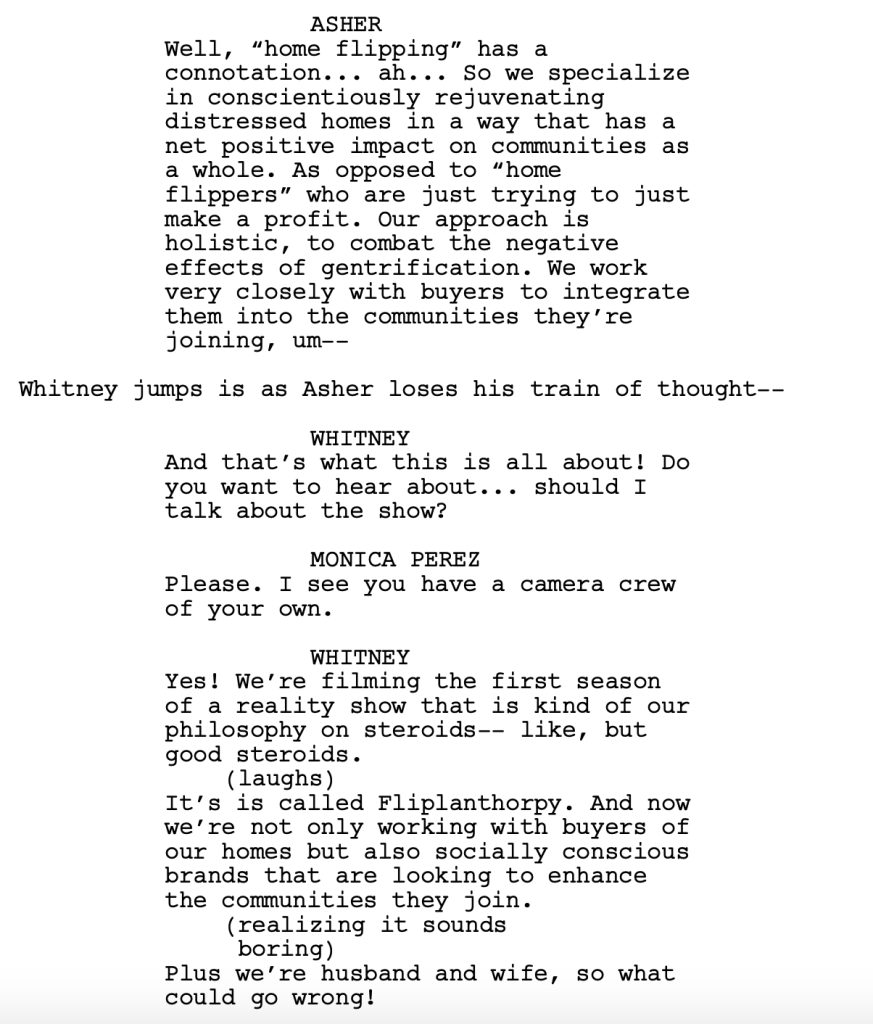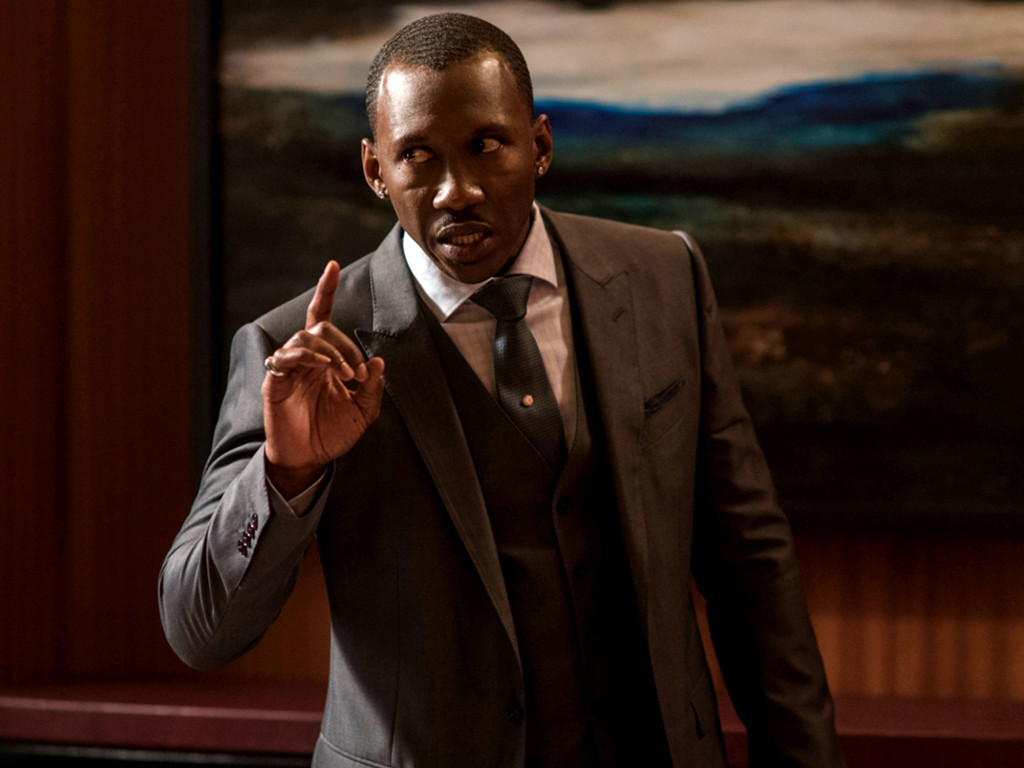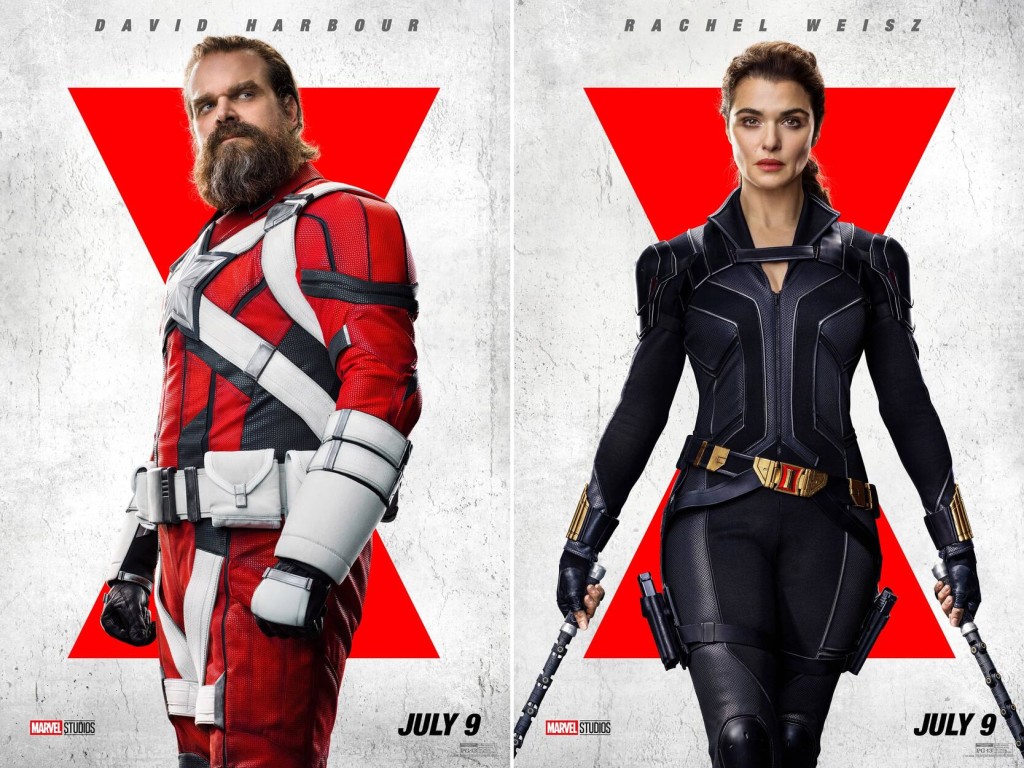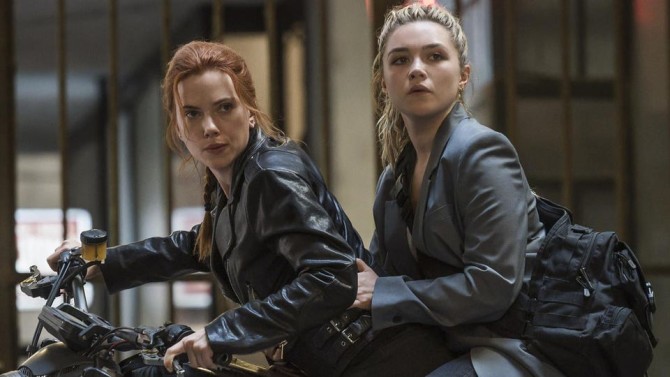Is Space Jam 2 secretly a great movie??? Why did Black Widow drop so much in its second weekend? Has Cannes ever given the Palme D’or to a good film?? And Carson offers a book recommendation!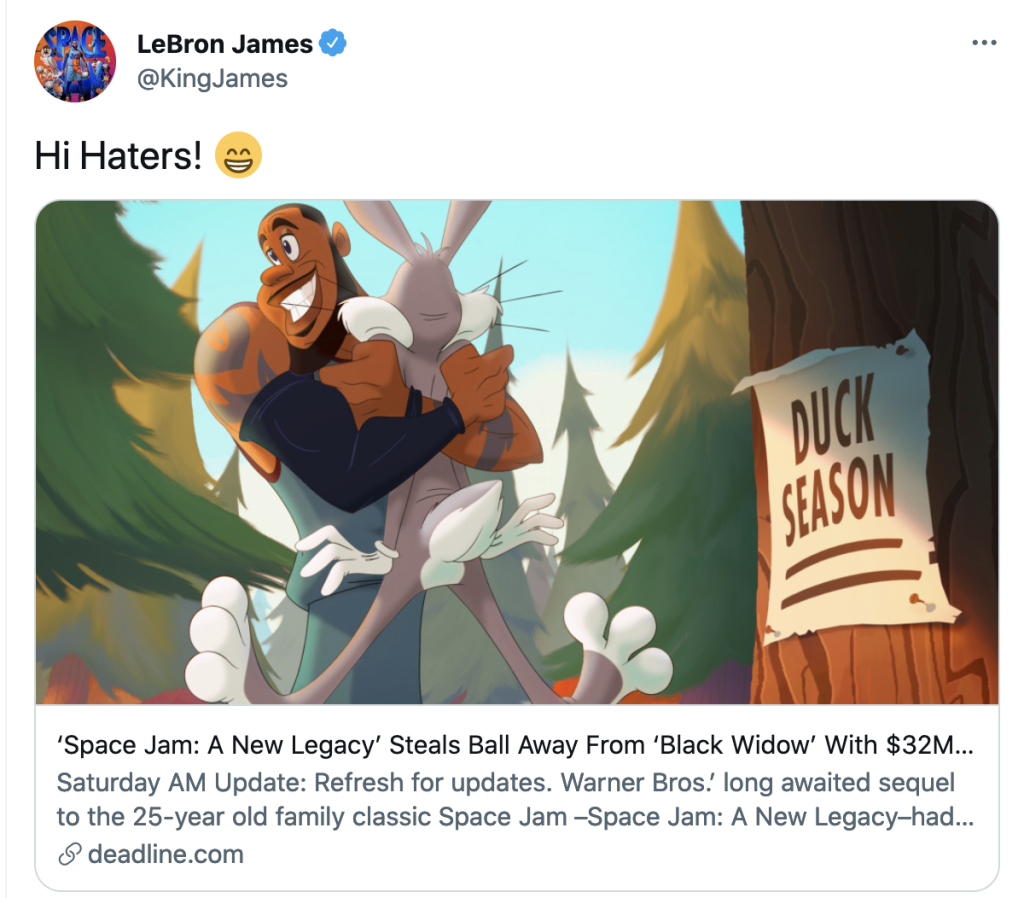
Out of morbid curiosity, I threw on Space Jam this weekend. It was on HBO Max 4 free so why not? My enjoyment of the film, if you can call it that, was inconsistent at best. There is only so much fun an adult can have with a movie that’s made for 11 year-olds. But when I turned off my brain and leaned into that kid who thought Saturday morning cartoons were the coolest most awesomest things that life had to offer, I enjoyed myself.
But I’m not here to review the film. I’m here because I had an epiphany while watching the movie. Are you ready for it? Here it is: Every screenwriter should write at least one family movie. Even if you never show that script to anyone, you should still write it. Let me explain why.
A family film allows you to practice executing all of the big screenplay beats without fear of overdoing it. Since family films are not put under the same microscope as, say, a David Fincher movie or a Noah Baumbach film, you can practice all of the things you’ve learned on screenwriting websites without having to worry about being too on-the-nose. That’s because kids movies ARE on-the-nose.
Take, for example, the hero’s arc. This is the most classic story beat there is. You have a main character. They have some sort of problem in their lives holding them back. The journey they go on is about realizing why this issue is hurting them, and ultimately learning that there’s a better, more fulfilling, way to live life. This transformation – or “arc” – leaves the audience feeling happy because they, too, have issues holding them back. They feel that if this movie character can overcome their flaw, they can overcome theirs as well.
But a character arc is quite a delicate measure to pull off. It looks easy when it’s done well but there are a lot of places where you can screw it up. A common issue is that the writer will say, “I don’t want to overdo it,” and be reallllllyyyyyyy subtle in how the flaw plays out. They’ll hint at it on page 30, hint at it again on page 50, before finally having them overcome it during the climax. When the reader asks, “What was that whole thing at the end where the hero said to his daughter he was going to donate his life savings to cancer research?” The writer replies, “It’s because he’s no longer greedy! The hero finally realized that money isn’t what matters. It’s family!” The reader responds with a side glance. “The hero’s flaw was that he was greedy?” And the writer dies a little inside.
The great thing about kids movies is that you can lean into this stuff and not worry about it coming off as corny or on-the-nose. In Space Jam, Lebron James’s son doesn’t want to be a basketball player. He wants to make video games. Lebron can’t accept that his son doesn’t want to play basketball and keeps pushing him to ditch the computer and practice his jumper.
After Lebron gets sucked into the Toon world, where he and the “Toon” squad are up against the “Goon” squad, Lebron keeps telling his teammates what to do. Move the ball up the court quickly. Set picks here. Step back, crossover when the other player is too close. Dunk. Etc. The results are not good. By halftime, they’re down 1000 points.
Lebron asks the team what’s up? Why are you playing so bad? They concede that they’re doing what he told them to do – be like him – but it’s not working. Lebron has his big epiphany. Just like with his son, everybody here has their own talents. He can’t make them be like him. He has to let them be themselves. Lebron has arced! And, of course, once the toons can start doing toon things (Roadrunner painting a fake desert canvas that the Goon players disappear into) they start winning.
Now some of you may be rolling your eyes. “SOOOOO ON-THE-NOSE. SOOOOO CHEESY.” That’s the point. You can’t learn to execute a flaw subtly if you’ve never executed a flaw effectively in any situation. This holds true for all the big screenplay beats: the inciting incident, the refusal of the call, the fun and games section, the midpoint escalation, the central relationship conflict, making the final goal seem impossible. When you write a children’s movie, you get to master all this stuff without the cynical rolling eyes of the high-expectation moviegoer.
Every genre has a slightly different expectation when it comes to screenplay beats. The kid’s movie is on-the-nose. The buddy-cop movie is a still on the nose but a little less so. The serious action movie, like Jason Bourne, is more subtle still. All the way up to Oscar dramas, where the goal is to camouflage your screenplay beats to such a degree that the audience is unaware that the movie was even written in the first place.
So go write that family film. The good news is that if it’s actually good, it’s one of the most profitable genres in the business. So you could get paaaaaaaaaid.
Moving along, Black Widow did not do well on its second weekend at the box office, dropping a widow-making 67%. For some reference, the last Marvel movie to be released, Spider-Man: Far From Home, dropped 51% on its second weekend. If we want a closer comp, we can use Captain Marvel, which dropped 55%. The reason 55% is so concerning is that Captain Marvel was a brand new character. Black Widow is a known character who had been around for a decade. If anyone should have the lower drop, it should be the proven character.
What does this mean? Hard to tell. Everything in the post-pandemic box office world is hard to gauge. Who knows how many people are buying the movie from Disney’s “Premiere Access” service. To be honest, as I’m writing this, I’m not even sure if they’re including the money they got from Disney + in that final box office haul or not. If it is included, that means even fewer people went out to watch the movie.
I did hear something interesting about Black Widow from Half in the Bag’s review this week where they said Marvel starts creating their action set pieces before the director has even been chosen. I don’t know how accurate this information is and I’m sure it differs from project to project. But it would certainly explain why Black Widow’s set pieces felt disconnected from its family-oriented storyline, which I found to be pretty good.
I’ve actually wondered this for a while. How is it that Marvel is recruiting these directors who have never shot an effects shot in their entire careers, and putting them in charge of action set pieces that, individually, cost ten times as much as the most expensive movie they’ve made? I guess that’s the answer. Marvel says “F U, newbie. We’re going to shoot the action scenes ourselves and you can record your little two-people-in-a-room-talking scenes when we call on you.” I think one of you pointed this out in regards to Eternals. They’re having all sorts of issues balancing Chloe Zhao’s muted heavily dramatic character stuff with the big fancy set pieces. As a result, Zhao has been pushed to the side while second unit directors with more experience finish the movie.
This probably goes on more than we know. We heard this same thing happening all the way back with Rogue One, with Gareth Edwards not being able to handle the grandness of his super-movie. So they replaced him with Tony Gilroy. All of this is a result of Hollywood moving away from bland but experienced directors (aka Ron Howard) to “visionary” but inexperienced directors. These directors bring vision. But never having been on a giant set before or having filmed a giant set piece, they need help. So studios, I guess, have come up with this hackneyed solution to the problem, separating the effects directing team from the film directing team.
I think this is why Kathleen Kennedy loved Rian Johnson so much. She thought she had the best of both worlds. She got a director who has a unique vision who ALSO made enough movies that he didn’t need babysitting. She could just leave him alone to make his movie. Of course, her Rian Johnson beer goggles kept her from realizing he’d written a garbage script. Which just goes to show how difficult making a good movie is. Even when you think you’ve got all your bases covered, you can still make a terrible movie (“Hey, I got an idea. What if we made the most iconic hero in movie history, Luke Skywalker, as unlikable as possible? Who’s with me?”).
Elsewhere, the Cannes Film Festival just wrapped. If you’re looking for movies that are guaranteed to be bad, look at whatever the Cannes Film Festival celebrates. You may say, “Carson, why are you such an indie film hater?” That’s not what this is about. The French Film Industry refuses to put any stock into the trade of screenwriting. Nobody cares about screenwriting over there. All they care about is the director. This is why they celebrate so many movies that are terrible. Because they don’t care if the story makes sense. All they care about is what the film looks like.
Another problem with Cannes is that they hate Hollywood so much that they are determined to celebrate the opposite of whatever comes out of the studio system, even if that means propping up something terrible. It’s more important to NOT be Hollywood then to find actual good movies. To a certain degree all film festivals are like this. Sundance is pretty pretentious itself. But Cannes is the worst.
Now, I will admit they’ve gotten it right a few times. Parasite was amazing. And The Square was pretty cool as well. But they often prop up weird, nonsensical, boring films that are rewarded for things other than storytelling. I don’t know where the word “pretentious” derived from, but I always look at it as a derivation of “pretend.” All of these Cannes films are people pretending to make something profound when, in actuality, once you look past the directing, they’re just as vapid as the worst Hollywood flicks. By the way, how the heck didn’t The French Dispatch win the Palme D’Or? It’s not only black and white (any black and white film entered into Cannes is automatically placed in the Top 5). But it’s got “French” in the title! So disappointed in Wes Anderson.
Let’s end this Mish Mash on a positive note. As you know, I loved Sally Rooney’s Normal People on Hulu. I thought it was excellent. I recently found out the same filmmaking team, including the awesome Lenny Abrahamson, are filming Rooney’s first novel, Conversations with Friends, as a follow-up. So I picked it up and read it. I wanted to see what it was about Rooney’s writing that allowed it to be adapted into something so powerful. And, holy s#%@. I was not disappointed.
Rooney is an exceptional writer. The premise of the novel is simple (you guys know I like simple stories!). A young spoken word poet starts dating an actor who’s married to a journalist doing a story on her. You’d look at that and think, “How do you get more than 50 pages out of that? That’s a subplot for any other novel.”
But Rooney somehow makes it compelling the whole way through.
Part of it is her inherent talent to communicate the complexities of the human experience better than any writer in recent memory. She has these insights into the minutiae of human interaction that are consistently illuminating. You sit there and you think, “I’ve always thought that abstractly but have never been able to communicate it the way she just did.” And she mixes in this deft touch of dry humor every once in a while which turns what should be sad moments into something really funny.
My discovery that I was in love with Nick, not just infatuated but deeply personally attached to him in a way that would have lasting consequences for my happiness, had prompted me to feel a new kind of jealousy toward Melissa. I couldn’t believe that he went home to her every evening, or that they ate dinner together and sometimes watched films on their TV. What did they talk about? Did they amuse each other? Did they discuss their emotional lives, did they confide in one another? Did he respect Melissa more than me? Did he like her more? If we were both going to die in a burning building and he could only save one of us, wouldn’t he certainly save Melissa and not me? It seemed practically evil to have sex with someone who you would later allow to burn to death.
As you can see, her writing is simple. It’s easy to read. As you guys hear me talk about all the time, making your writing easy to read does you so many favors. I’ve come across lots of strong concepts that were ruined by writers who were trying to prove to you that they were Writers with a capital “W.” Rooney reminds us that you can convey everything you need to using simple words embedded in basic sentence structure.
I know she’s not for everyone. I’m not trying to convert anyone here if you’re not into these types of books. But if you liked Normal People and you like good writing and you want to be inspired, definitely check out Conversations With Friends. It’s really good.
We’re keeping it going with Sci-Fi Showdown inspired Thursday articles. Remember, the Sci-Fi Showdown deadline is Thursday, September 16th. You can learn more about it here. It’s absolutely free. So get those sci-fi scripts finished and get them in on time. Let’s make a f%$#ing great science-fiction movie together!
One thing I want to point out before I get to today’s tips. A lot of these tips deal with the chase aspect of the film. But these tips can work for ANY type of chase. A car chase. A foot chase. An across-the-galaxy chase. They can also work within chase sequences. So if your script just has one chase sequence, these tips can be applied to that as well. All right. Let’s get to it.
1) 99% of Sci-Fi Movies require voice overs or a title card at the beginning of the movie to explain what’s going on – If you don’t need a ton of explanation to set up your movie, use a title card. If you’ve got a lot to explain, use a voice over. Fury Road uses Max’s voice over. Star Wars uses title cards. I don’t care which you use but you probably need one. If we don’t know how your world operates, we’re going to have a tough time enjoying what’s happening.
2) Urgency and Sci-Fi go together like peanut butter and jelly – The most underrated reason for Star Wars’s success – and I’m talking the original Star Wars here – is its urgency. Urgency can camouflage all sorts of script problems due to the fact that the story’s moving so fast, the reader doesn’t have time to notice problems. Fury Road doesn’t just embrace urgency. It makes it the driving force behind the entire story. The bad guys are always right behind them. There’s never time to slow down.
3) If you’ve got two protagonists, don’t let your first act get bogged down setting those protagonists up – Fury Road has two heroes, Max and Furiosa. Had they written this script traditionally, they would’ve spent the first 30 pages of the script setting both Max and Furiosa up before we went on the journey. Director George Miller knew that’d be a dumb idea in a movie built around urgency. So he chose to set one character up before the chase (Max) and the other character up during it (Furiosa). Too much setup can lead to boredom which is why saving some character setup for the journey might be a good option.
4) Why limit yourself to two sources of conflict when you can have three? – With one hero, you get internal conflict (the battle against one’s self) and external conflict (the battle against the antagonist). With two heroes, you get those things along with a third element of conflict – inter-relational conflict (the conflict that occurs between the two main characters). Since a good argument can be made that the more conflict there is in your story, the better, consider allowing two heroes to lead your movie instead of one, like Fury Road.
5) Your sci-fi movie *must* have original ideas! – If you’re not bringing any original ideas into your science-fiction film, don’t bother writing it. Sci-fi is a genre where a heavy expectation is placed on creativity and imagination. That means you’re going to have to take some risks and make some non-traditional choices. In Mad Max Fury Road, there is zero reason for Immortan Joe to create a big crazy theatrical chase team that consists of fireworks and dudes playing electric guitars on an 80 mile per hour stage to chase Furiosa. In fact, it’d be a hell out of a lot smarter to jump in your fastest cars and chase Furiosa that way. Yet that is exactly what separates this movie from every other sci-fi movie, is the theatrical nature of the chase. What choices will you make that set your sci-fi script apart?
6) In chase movies, you want to put your character in a lot of a situations where going forward is HARDER than surrendering – Too many screenwriters treat their on-the-run protagonists like little children that need to be coddled and helped. That’s the opposite of how you should treat your protagonists. You want to place your protagonists in situations where surrendering to the bad guys is the better choice. They famously did this in Empire Strikes Back when Han Solo decides to fly into a mine field to escape Darth Vadar, despite the fact that there was an infinitely higher chance he would die in the mine field. Same thing here. Furiosa sees the mother of all sandstorms ahead of her. Surrendering would be the better choice in this situation. Which is why we get so excited when she chooses to keep going.
7) Silent Characters work much better on screen than they do on the page – Mad Max in Fury Road, much like Mad Max in the original Road Warrior, doesn’t say a whole lot. While this can work great onscreen with a strong actor and strong director, it’s something I’d be wary about doing in a spec script. Unless your silent hero is EXTREMELY ACTIVE and always charging forward making bold choice after bold choice, he’ll likely disappear on the page. I’ve read lots of scripts with quiet protags and, I can promise you, those characters rarely make an impact. The difference with something like Fury Road is that the director is writing the script. So he doesn’t have to worry about any characters not working on the page as long as they work onscreen.
8) Fast movies need quick flashbacks – For the 217,000th time, don’t use flashbacks to begin with. But if you do, use them sparingly and with purpose (they must be necessary, not exposition-dumps). In action movies, you can use flashbacks, but do so in the spirit of the genre and be quick about it. Max has this backstory where he got a girl he was protecting killed. We get a good dozen flashbacks of this throughout the movie, but they’re very quick – 2 seconds or less. All that matters with backstories is that we understand them. So if we can understand them in 2 seconds, you’ve done your job.
9) – Mythology tends to work best when it operates in the background, not when you shine a big light on it and say, “Look at what I did.” – Science-fiction writers tend to love their mythology (the inner workings of their fictional world) so much that they constantly halt the movie so that their characters can talk about or exhibit aspects of that mythology (see Matrix: Reloaded). What’s so great about Mad Max Fury Road is that most of the mythology is background noise. There are these pale soldiers. They seem to have some sort of blood disease. They have their own language, their own chants. There’s a specific moment, during an intense part of the chase, where one of them sprays some crazy drug-foil all over his face, he screams out a well-known chant to the others, before leaping onto the enemy car with explosives, destroying it. There were so many little moments like that that only the pale soldiers understood – and Miller never stopped to explain all of it. It was always happening in the background.
10) Someone in your movie’s got to arc, dammit – Some serious directors and writers consider character arcs unrealistic. I just brought this up last week with Quentin Tarantino. You can see that in Fury Road in that both Max and Furiosa do not change. They do not arc. But you’ll also notice that Nux (the “War Kid” who originally would do anything for Immortan Joe) ultimately relinquishes his allegiance to him to help the rebel crew. Audiences like at least one character in a movie to go through some level of change. If you’re worried about a character flaw that would feel dumb or false for your heroes, know that you can use other characters in your movie to explore an arc as well.
Bonus Tip! – A great climactic set piece is all about making it look like there’s no way your heroes will win – It should never EVER feel like your heroes are doing well in a climax. You want the opposite to happen. Keep stacking the odds against them. Fury Road is a great example of this. When the protagonists are forced to go back through the bad guys to get away, there isn’t a single moment in that sequence where we think our heroes have a leg up on the bad guys. There are an endless amount of cars. As soon as one is taken out, another one takes its place. The bad guys are able to snag one of the girls. Max, on top of the truck, is barely holding off bad guy after bad guy. We feel positive that our heroes will fail. Which is exactly how you want it to be.
Dude, what are you doing!? You’re sending your script out without getting professional feedback first? You’re NOT getting help from someone who can tell you EXACTLY what’s missing and how to fix it? Why?? You only get one shot with these industry contacts. Don’t screw it up by sending them the 10,000th average screenplay they’ve read this year! I do consultations on everything from loglines ($25) to treatments ($100) to pilots ($399) to features ($499). E-mail me at carsonreeves1@gmail.com if you’re interested. Use code phrase ‘WARM IN JULY’ and I’ll take a hundred bucks off a pilot or feature consultation. Chat soon!
Genre: Comedy I guess?
Premise: (this logline is from IMDB) THE CURSE is a genre-bending scripted comedy that explores how an alleged curse disturbs the relationship of a newly married couple as they try to conceive a child while co-starring on their problematic new HGTV show
About: Today’s pilot script comes from Benny Safdie and Nathan Fielder. Benny is obviously one half of the directing team behind Uncut Gems. Fielder had a show called Nathan For You. Somehow, these two kidnapped Emma Stone to be on this show, which will come out on Showtime.
Writers: Benny Safdie & Nathan Fielder
Details: 41 pages
I’m a HUMONGOUS fan of the Safdie Bros work ever since I was dragged, kicking and screaming, to a special screening of Good Time. My date kept insisting, “They’re supposed to be the next big thing in directing.” I rolled my eyes. “You know how many times I’ve heard someone anointed as the next big thing in directing?”
Flash-forward three hours and I felt like I’d just had a religious experience. Wow was that movie good. But what happens when two Safdies become… one Safdie? Does this show still have a chance? Since I’m writing this paragraph after I’ve read the pilot, I can tell you that it definitely does not.
36 year old Asher is a hipster type who’s married to 35 year old Whitney. What do these two do? Since I’ve written several drafts trying to summarize the plot and failed, I’ll let the script explain it to you. Here, Asher and Whitney, who flip houses, are being interviewed by a local newsperson about their job. Here’s how that interaction goes….
Yes, Asher and Whitney have a reality show where they flip houses and partner with companies to bring high-end stores into low-income neighborhoods and then give a small portion of the jobs from those stores to local people, which they then document for their TV show.
Right. Great stuff.
Anyway, I get the feeling that Asher and his co-worker, Dougie, are supposed to be like Dumb and Dumber, maybe? For example, Whitney sends them out to get some B-roll and encourages them to film stuff that makes them look good. So Dougie films a shot of Asher giving a homeless woman $100.
Once they get the shot, Asher runs back to the homeless woman and confides in her that he accidentally gave her $100 when he meant to only give her $20. So he asks for the $100 back. And, after he takes it back, she yells at him that she’s put a curse on him. That’s right folks. As if we didn’t already have enough going in this show, they have decided to now add a curse storyline.
And that’s the setup for The Curse.
Yesterday, I reviewed a script that everybody should read in order to become a better screenwriter.
Today, I’m reviewing a pilot that everybody should also read to become a better screenwriter.
There’s one difference.
Read yesterday’s script to see WHAT TO DO. Read today’s script to see WHAT NOT TO DO. And when I say, “not to do,” I mean “NOT TO DO!!!!!” I don’t think there’s a single good creative choice that was made in this pilot. It’s really really REALLY bad. Bordering on Mattson Tomlin bad. Bordering on ‘they’re going to be embarrassed when they put this on the air and people see it’ bad.
Whenever people aren’t vibing with your script, it can usually be traced back to the concept. If the concept is weak or messy or boring or stupid, you’re building everything that follows – your characters, your plot, your dialogue – on a shaky foundation. So it doesn’t matter whether your plot or your dialogue works. We’ve already decided the show sucks.
I would put The Curse up there as one of the most misguided show ideas I’ve ever come across. Bear with me for a second as I explain this show to you. It’s about a group of people who flip houses and who also build upscale stores in low-income neighborhoods and who also have a reality show that follows them around while doing this and who also have one of their production team members get cursed by a witch.
Marinate on that for a second.
Just throwing out thoughts right now.
But did it ever occur to anyone who was a part of this project that, oh, I don’t know, there’s like 1500 too many things going on in this show?!?
For crying out loud PICK ONE THING. Talk about confusing. I didn’t even know it was possible to come up with a show this confusing.
Was Emma Stone conned into this? Did she read this script? Did anybody pitch it to her? Cause the only thing that makes sense is that she was friends with either Nathan Fielder or Benny Safdie and joined the show cause they asked. Because I would bet my life that there is NO WAY any actress who read this part, much less one with as many choices as Emma Stone, would sign onto this.
I might be okay with all this plot noise if the show was funny. But there are so many confusing ideas clashing with each other here that you’re not even sure what genre of comedy you’re watching. Is it lowbrow comedy, satire, broad comedy? Feels to me like mish-mash random desperateness comedy. During one two-minute period, we see two men’s penises. One, a close up while going to the bathroom. Another, when an older gentleman purposely has his penis hanging out of his pants. I’m guessing this passes for comedy somewhere. But you’d be hard-pressed to tell me where.
The NUMBER ONE SCREENWRITING MISTAKE I SEE is writers OVERCOMPLICATING THEIR STORY. Period. That’s it. That’s the biggest recurring mistake I see, and I see it, literally, a dozen times a month. And writers never learn. They think more equals better.
That’s not the case with screenwriting. More equals messier. More equals clumsier. More equals more confusinger. There’s so much shit going on in this story, it never had a chance.
I don’t see why I have to write anything else. There are no more lessons to learn here.
Listen to me if you want success in your screenwriting career: STOP OVERCOMPLICATING YOUR STORIES. Pick a clean easy to understand idea, then populate it with some kick-ass characters. That’s it. That’s the formula for TV.
[x] What the hell did I just read?
[ ] wasn’t for me
[ ] worth the read
[ ] impressive
[ ] genius
What I learned: This was my biggest fear when we moved from a 100 TV Show industry to a 700 TV show industry. Is that the writing talent would get so watered down, we’d have to wade through 50 terrible TV shows just to find one good one. The Curse should rename itself to The Worst. Cause it may be the worst of those 700 shows.
Today I review a script by the writer of the NUMBER 1 screenplay on my Top 25 List, E. Nicholas Mariani!
Genre: Drama/True Story
Premise: A black lawyer attempts to free 87 black men who were erroneously charged with killing a white man in 1919 Arkansas during the height of the Jim Crow era.
About: E. Nicholas Mariani needs no introduction on this site. He is the author of the number one script on my Top 25. Somehow, 41 other scripts scored higher than this one on the 2018 Black List. Injustices all over the place!
Writer: E. Nicholas Mariani
Details: 180 pages!
You know, if there’s one thing I like about Nicholas Mariani, it’s that he doesn’t swing for doubles. He swings for grand slams. He goes ALL IN with The Defender. And when you go all in, you either fall on your face in spectacular fashion, or you win an Oscar. Let’s see where The Defender’s going to end up.
It’s Little Rock Arkansas, 1919. World War 1 has just ended. It’s a celebratory day in town. Except for 55 year old black attorney Scipio (pronounced ‘Sippy-oh’) Africanus Jones, who’s just watched yet another black man he’s defended, a soldier no less, hanged.
Scipio is an interesting person. He was born a slave. He worked the cotton fields. He then clerked at a law office where he became a self-taught lawyer. He’s since become very well-respected by people of all colors in town.
But that respect is about to be tested. A young black man named Robert Hill comes to Scipio’s office and asks him to help him form a union in downstate Elaine, a town with lots of black people working the cotton fields. Scipio tells him he’s nuts. The second they find out that black people are forming a union, they’ll come after him. But Robert says he’s doing it anyway.
A few days later, Scipio gets the news that black people down in Elaine who were planning to take over the town killed a white man. In the process, all 87 of the men who were conspiring to do this are in jail. Against his better judgement, Scipio goes down to Elaine, where he finds out that nothing about the stories in the paper were true.
A group of white people attacked the church where the black people were planning the union and accidentally shot one of their own in the back of the head. This created a frenzy and all the white people in town went to hunt down black people. Somewhere between 300-1000 black people were killed.
Scipio realizes that the odds are against him for saving these 87 men, 12 of whom refuse to enter a guilty verdict, meaning that they will all be hanged. But Scipio is one of the most clever lawyers you’ll ever meet so he concocts a multi-leveled plan that will invoke laws that pre-date the American legal system, all in the hopes of winning a case that, if he succeeds, will change America forever.
I had little doubt I was going to like this one.
Mariani is the real deal. How he’s not pulling in million dollar rewrites on Oscar-hopeful projects is beyond me.
My only real criticism of the script is that it’s too long. But Mariani is one of those rare writers whose scripts are so easy to read (even when they’re dealing with serious subject matter) that the script doesn’t feel nearly as long as it is.
Let’s start at the beginning and move our way through the script.
As I’ve told you a million times, how a script begins tells the reader everything he needs to know about if the writer has the goods. If you start with something boring, the reader expects a boring script. If you start with something clumsy and unclear, the reader expects a messy script. If you start with something cliche, the reader expects a cliche script.
There’s an early scene here where a black man is being marched to his hanging in Little Rock, Arkansas in 1919. Tell me how you imagine this scene. Would there be a large group of white people screaming the n-word at the black man as he’s marched to a tree? Would there be an evil sheriff with a wide grin on his face as he eagerly anticipates the man’s death? Would the sheriff then give a speech to the crowd of people about how “this is what happens” when you “disobey the law” complete with a drawn-out southern accent?
I’m guessing 90% of you imagined that scene.
Which is the number one sign that you shouldn’t write that scene. Good writers avoid expectation and cliche. If they feel like they’ve seen it, they’re going to look for another way to write it.
In Defender, the scene takes place right there in the prison yard. The white warden is not happy that he has to lead this man to his death. There is no crowd cheering. The moment is sullen. Regardless of skin color, nobody is comfortable with what’s happening. And when the death is imperfect and the victim suffers, everyone is mortified. Nobody feels good about it.
This scene let me know I was in good hands. I knew the writer wasn’t going to execute scene after scene in the cliche most predictable fashion possible.
Next up we’ve got our main character, 55 year old Scipio Africanus Jones. This character is so damn likable, which is a big reason why this script works so well. A lot of producers and executive types toil over how to make characters likable, as if there’s a secret handbook that keeps all these tricks hidden from the world. But, in reality, you just have to think of what makes a regular person likable. Scipio sticks up for the little guy. Scipio watches, sadly, as a friend hangs, powerless to do anything about it. Scipio is friendly to everyone. Scipio is intelligent. Scipio stands up for himself. There’s no magic formula here. Just imagine what makes you like people in the real world and apply it to your character.
Mariani is also a great scene-writer. Good scene-writing DOES have its own secret playbook and the only way to access it is to write a lot and figure out what works and what doesn’t. Mariani’s scene-writing book seems to be quite large. There’s an early scene that occurs in Elaine where Scipio heads to the courthouse to make some requests from the judge.
This is a pretty standard setup for a scene – two people talking in a room. So to make it more exciting, Mariani adds a scene agitator (you can learn about scene agitators in my book) where the entire town has just gotten back from the funeral of the white man who was killed. So they storm the courthouse, screaming and yelling, seemingly on the brink of breaking in. That basic “two people talking in a room” scene all of a sudden becomes a lot more charged.
I feel like I’m going over the advanced screenwriter’s playbook here, there are so many impressive things Mariani does, but what can I say? He’s a great writer. For example, he could’ve easily had Scipio head to Elaine based off of newspaper headlines alone. Most writers would’ve done it this way. But Mariani knew that it would be better if both Scipio and the audience had a personal connection to the massacre.
So he writes a scene beforehand where Robert Hill comes to his office and tells him about the union he wants to form down in Elaine. We like Robert immediately because he’s fighting for the disenfranchised and because he’s brave. This way, when the news of Elaine hits the papers, both us and Scipio have a vested interest in going down there. It’s choices like this that turn good scripts into great scripts.
Another advanced choice Mariani made was that not every white person who stood in Scipio’s way was bad. In some cases, these men wanted Scipio to win. But they also had their own interests to protect, which led to a lot of difficult choices for both sides. This is where you can really create a powerful story – when you make things difficult for your characters.
Scipio’s most powerful ally is Governor McRae. McRae is motivated by reelection. He wants to make sure that he doesn’t seem too sympathetic to the black populace of Little Rock, which is why he’s leaning towards convicting these 87 men. Normally, you’d think, “well f*$# him.” The problem is that Governor McRae’s opposition is a full-on racist. So Scipio has to play things very delicately. He needs McRae on his side. But McRae can’t be too on his side because then McRae might lose the election, which means Scipio’s town will now be ruled by a man who supports the Ku Klux Klan.
I loved this because it made you think. There was some real strategy involved in every choice Scipio had to make. By far the biggest issue I run into with scripts that deal with race is that they’re too black and white. There’s no subtlety anywhere in the story. Those are the easiest scripts for me to put down.
I don’t know what’s up with me this week because yesterday I was tearing up during Black Widow. Then during this script I was practically bawling by the end. But man, this was a really good script. If you’ve got the time and you want to become a better screenwriter, read this script. This is what top-level screenwriting looks like.
[ ] What the hell did I just read?
[ ] wasn’t for me
[ ] worth the read
[x] impressive
[ ] genius
What I learned: Nothing should ever be given to your characters for free. A representative from the NAACP shows up offering money and positive press coverage to Scipio. But if they give it to him, they want to be the face of the trial. They want all the glory if they win.
Genre: Superhero
Premise: While the Avengers are on a break, Black Widow receives a message from her long lost sister that a Russian villain is planning something gnarly, requiring her to re-join her family to take care of the problem.
About: Black Widow’s 80 million dollar weekend haul proves that the only thing that Covid can’t beat… is Marvel. Eric Pearson wrote the script. And while that normally wouldn’t be a story, IMDB Pro has added a new classification – SCRIPT DOCTOR – to its credit vocabulary, and it appears that Pearson has script doctored almost every Marvel movie since 2015’s Ant-Man. What “script doctoring” means here is anyone’s guess! Black Widow was directed by Cate Shortland, who was heavily recruited by Scarlett Johansson. Johansson was big on Shortland after seeing her 2012 film, “Lore,” about five children forced on a journey during the last days of World War 2. Johansson called the film, “About as perfect of a movie as there is.” Rotten Tomatoes seems to agree with her, giving the movie a 94%. Although average moviegoers weren’t as excited, assigning the film a 76%.
Writer: Eric Pearson (story be Jac Shaeffer and Ned Benson)
Details: 133 min
I have a serious question.
Is Black Widow a superhero?
At one point, her sister says, ‘I called you because you’re the only superhero I know.’ I was like, “Sweetheart, can you do a cartwheel? Then you’re just as much of a superhero as Black Widow is.”
To this day, I still don’t know what Black Widow brings to the Avengers besides her flippy leg-chokehold bodyslam move. Can’t Tony Stark build her a suit to give her super strength or something? He basically turned the spidey-suit into a mini-Iron Man suit.
According to the latest Avengers movie, Black Widow is dead. Which means this Marvel incarnation takes place in the past, between Avengers assignments. Black Widow (aka Natasha) receives some red serum in the mail from her long lost sister, who implores her to use Tony Stark to find out what the serum is.
Instead, Natasha heads to Budapest to ask her sister, Yelena, why she sent it to her. The two haven’t seen each other since they were Russian children in a fake US family on assignment in Ohio. They don’t seem to like each other. I gathered that since, instead of hugging, Yelena tries to decapitate Natasha with a steak knife. The serum, as it turns out, allows people to be controlled by a mysterious man, who is using it to build an army of living drone soldiers.
The two realize they won’t be able to take this guy down alone so they go break their “father,” Alexei, out of prison and recover their “mother” as well. Before the family can take down the big baddie, they’ll first have to defeat Taskmaster, some metallic dude who has a Captain America shield. Will this pretend family be able to pull themselves together in time to get the job done? Or will they do what they always do – implode?
The funniest thing about Black Widow is that they’ve been campaigning to get Scarlett Johansson her own movie for almost a decade now and when they finally do it, she’s not even the star! Her sister, Yelena, is the star. She’s the one who has the problem. Natasha’s just along for the ride. As proof of how pedestrian a character Black Widow’s been, Yelena outshines her in every scene they’re in.
There’s a positive spin to this, though. A smart person who worked at Marvel said, “If we make a movie with just Black Widow, we’re f#$%d.” They knew she was too boring (and not superhero’ish enough) to carry a movie. So they built this team around her. And thank God they did because doing so turned Black Widow into a pretty darned good movie.
I actually learned something really valuable while watching this film.
When in comes to action movies, so many writers focus on the premise and the plot and set pieces and cool scenes. And all of those things are, of course, important. But let’s be real. If you’ve seen any big-budget movie in the last five years, you’ve seen this movie. You’re not going to come up with a set piece we haven’t seen before. You’re not going to come up with a car chase we haven’t seen before. You’re not going to come up with a fight scene that’s going to blow us away.
No matter how insane your imagination is, it’s unlikely you will ever come up with something that we haven’t seen before in other movies.
Which leads us to an obvious follow-up question: “Then what’s the point?”
Why even try?
If all we’re doing is copying things we’ve already seen, then why create yet another bloated CGI summer movie?
This movie reminded me why.
Because the truth about ANY movie is that if we connect with the characters, all of those moments – the car chases, the fight scenes, the set-pieces – we care about them. Even though we know they’re fake. Even though we’ve seen them before. When you connect with the characters, you enter into a quasi state of belief where the fictional world becomes reality.
Therefore, when you’re writing these movies, your core focus should be on creating a) believable characters and b) believable relationships. If you can tap into that rare thing where the character actions and interactions feel authentic – feel like they could exist in the real world – we will connect with and care about those people.
This script did a tremendous job of exploring a dysfunctional family. This was basically Little Miss Sunshine, the superhero version. This family has deep DEEP SET issues, deeper than any superhero movie I’ve ever seen. First off, the four family members? They’re not even a real family. They were a fake Russian family that was cobbled together to look like an American family for a covert operation in Ohio. So they grew up like a family, but they were all strangers to each other. That alone makes for a really interesting setup.
When you’re a pretend family, how much are you supposed to care about the others? When the mission of “Pretend Family” is over, how much responsibility do you have to talk to these people again? That conflict of not technically being a family yet still feeling the same guilt and frustrations associated with being a family made for some extremely emotional moments. I teared up more in this movie than any Marvel movie.
One of my worries going into this was, “How are they going to explain that Black Widow ghosted her family for twenty years?” But once you watch the movie, you get it. They’re not really a family. They don’t owe each other anything. And that makes Natasha and Yelena’s and Alexei’s interactions all the more fascinating since they’re all skirting the line of “I don’t have to care about you but I also want to care about you.”
I always find dialogue interesting when the motivations behind it are complex. And the motivation behind every dialogue scene in this movie is complex. Seconds after Yelena and Natasha rescue Alexei from prison, Alexei wants to talk about what his next mission is going to be while the girls are dealing with the fact that the only father figure they’ve ever had hasn’t even acknowledged that he’s happy to see them.
When he’s confronted with this, he makes an inquiry into how they’re doing, which quickly devolves into Yelena chastising him for placing her in a Russian spy training program where her uterus was ripped out to ensure that she would never have children. You got the sense that any conversation between this family could devolve quickly into that territory, which created that “walking on eggshells” undertone that makes dialogue so much more lively.
Black Widow works because the family works. Too many amateur screenwriters approach their big action movies the opposite way. They cook up a concept. They craft a plot. And then they try and cram their character storylines into that plot. I’m not saying that’s never worked before. But if you want to write an action movie where the viewer is actually engaged, Black Widow is the way to do it. Get the character right. Get the family dynamic right. And everything else in the story should follow.
Marvel continues to be the benchmark for high-budget franchise filmmaking. And, right now, the competition isn’t close.
[ ] What the hell did I just watch?
[ ] wasn’t for me
[xx] worth the price of admission
[ ] impressive
[ ] genius
What I learned: Normally, I encourage screenwriters to avoid bringing their hero’s past into the movie. Movies work best in the present. Especially action movies, which are all about the here and the now. However, when it comes to any movie dealing with family, IT’S ALWAYS ABOUT THE PAST. It would be weird if you made a family movie that DIDN’T bring up the past. Black Widow is all about the past. It’s about the fake lives they grew up leading, the terrible torture their father sent them into as children, the choices by Yelena and Natasha to avoid each other as adults. Everything in this movie is about overcoming the past. And, with movies about family, that’s how it should be.
Updated Marvel Universe Rankings
1) Thor Ragnorak
2) Captain America: Winter Soldier
3) Avengers: Infinity War
4) Captain America: Civil War
5) Spiderman: Homecoming
6) Guardians of the Galaxy
7) Ant-Man
8) Iron Man
9) Black Widow
10) Black Panther
11) Avengers: Endgame
12) Doctor Strange
13) Spiderman: Far From Home
14) Captain Marvel
15) Captan America
16) Thor
17) Guardians of the Galaxy 2
18) Iron Man 2
19) Iron Man 3
20) Loki
21) The Incredible Hulk
22) Avengers: Age of Ultron
23) Falcon and Winter Soldier
24) Wandavision
25) Thor: The Dark World
26) Ant-Man and the Wasp



